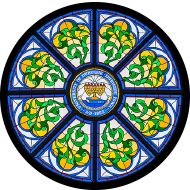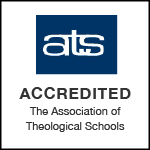UD Receives Grant from Dubuque Racing Association
Aug 23, 2007 | University of Dubuque Theological Seminary
The University of Dubuque has received a $20,000 grant from the Dubuque Racing Association to purchase equipment for the study of physiology.
Understanding human physiology - how the heart pumps, the lungs transfer oxygen, etc. - is essential to maintaining health and treating diseases. Nursing students typically study this field for a full year in basic preparation before progressing on to clinical instruction. Biology students study physiology in similar ways with animals. New equipment - consisting of five electronic units - will allow nursing students to perform more than 40 different physiologic tests such as: testing their own respiration before and after climbing a flight of stairs, measuring their own reaction time and the speed at which their nerves conduct signals, recording heartbeats by EKG and comparing it to normal tracings, examining the speed at which their digestive enzymes break down food, and studying how brain waves change during sleep. The equipment also allows biology majors to test the bodily functions of animals without harm to them in 30 different ways. This will permit our biology students to perform research with faculty, publish papers, and learn to be active participating scientists adding to their body of knowledge of life on earth.
Dale Easley, chair of the department of natural and applied sciences commented, "Equipment purchased with this grantwill be utilized by William Karkow, our newly hired biology professor, a retired surgeon from Manchester, Iowa.The DRA grant makes possible better utilization of his skills and gives students an opportunity for more hands-on experience."
"The physiology equipment will help nursing students understand normal and abnormal functioning of various body systems--essential to their critical analysis of patient signs and symptoms," said Kathryn Dolter, chair of the department of nursing.
The gift of this equipment from the Dubuque Racing Association goes hand-in-hand with the renovation of the recently dedicated University Science Center. The Center's laboratories include state-of-the-art equipment, such as this most recent gift of physiology equipment, that creates an ideal environment for exploration and discovery in an atmosphere conducive to today's interactive, interdisciplinary, hands-on learning styles.





